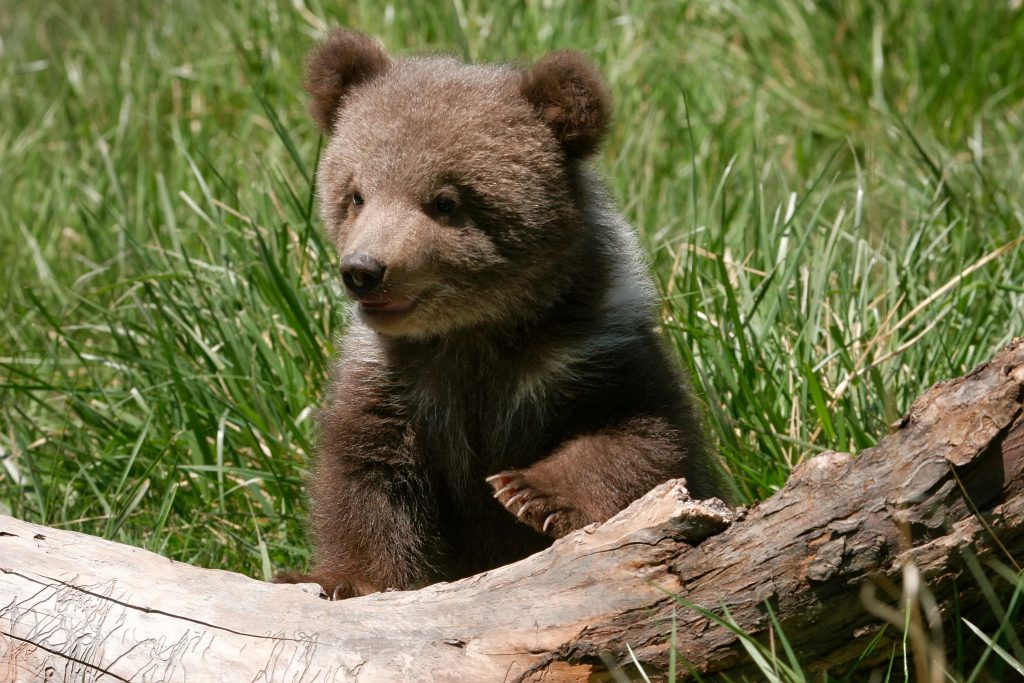
The U.S. Senate passed a “resolution of disapproval” last week, overturning an Obama-era rule that protected wolves, grizzly bears and coyotes from extreme hunting practices including aerial spotting, baiting, and killing animals who are with their cubs in their dens. The regulation, which was rescinded with a party-line vote of 52-47, specifically covered Alaska’s 16 wildlife refuges. The major argument against the measure rested on the familiar trope of states’ rights even though, according to the Humane Society of the United States (HSUS), Alaskans supported the rule by a 2-1 margin.
The Regulation
After being enacted in August of last year, the rule was administered by the U.S. Fish and Wildlife Service (FWS), a branch of the Department of the Interior. The purpose of the measure was to help sustain “naturally diverse and healthy ecosystems” by fostering apex predator populations (such as wolves and bears). Why are apex predators so important? According to FWS’s response to public comment 35, ecosystems rely on “apex predators to maintain long-term fitness and resilience of ungulate populations.”
For and Against
According to opponents, the question of wildlife management should be left up to the states. In the words of Representative Don Young (R-Alaska), who sponsored the bill, “We want to be able to take and manage our fish and game for the sustainable yield — so that our fish and game will be there forever.” And Senator Dan Sullivan (R-Alaska) said that the rule “undercuts meaningful public participation in refuge management decisions (and) utterly disregards the legal protections and rights given to the state in the Alaska Statehood Act.”
Democrats and advocates in favor of the Obama-era regulation held a different view. Nora Apter, legislative advocate in government affairs at the Natural Resources Defense Council, told NBC news, “This bill would set a dangerous precedent for unnecessary and unsustainable hunting methods on national wildlife refuges.”
According to Erica Martinson at adn.com, the struggle in Congress was primarily about first principles. In her article, she wrote, “At the heart of the disagreement between state and federal wildlife managers is what each group thinks should guide its purpose.” On one side, she said, you have the FWS looking out for sustainable ecosystems, while on the other side you have Alaska’s Board of Game seeking greater populations for hunting.
Inhumane Practices
The regulation – which was rescinded by way of an obscure legislative tool known as the Congressional Review Act (CRA) – prohibited hunting practices deemed unsporting and aggressive. One such hunting tactic, known as aerial spotting, utilizes aircrafts to scout black and brown bears to facilitate killing them. The measure also made it illegal to use extreme devices such as wire snares and steel-jawed traps. These hunting tools are banned or partially prohibited in 85 countries because they are inhumane, sometimes leading to death by dehydration, starvation or infection.
The CRA has now been used by the 115th Congress to successfully repeal 10 different Obama-era regulations, assuming Trump signs the remaining seven. When CRA takes a rule off the books, it also prevents a “substantially” similar measure from being written, which means in the years to come, Congress’ actions will be very difficult to undo.
And who suffers in all this? Working people, the unemployed, teachers, and perhaps humanity as a whole. This is particularly true when you consider the environmental impact of legislation such as this bill that will rescind the FWS rule.



Leave a Comment